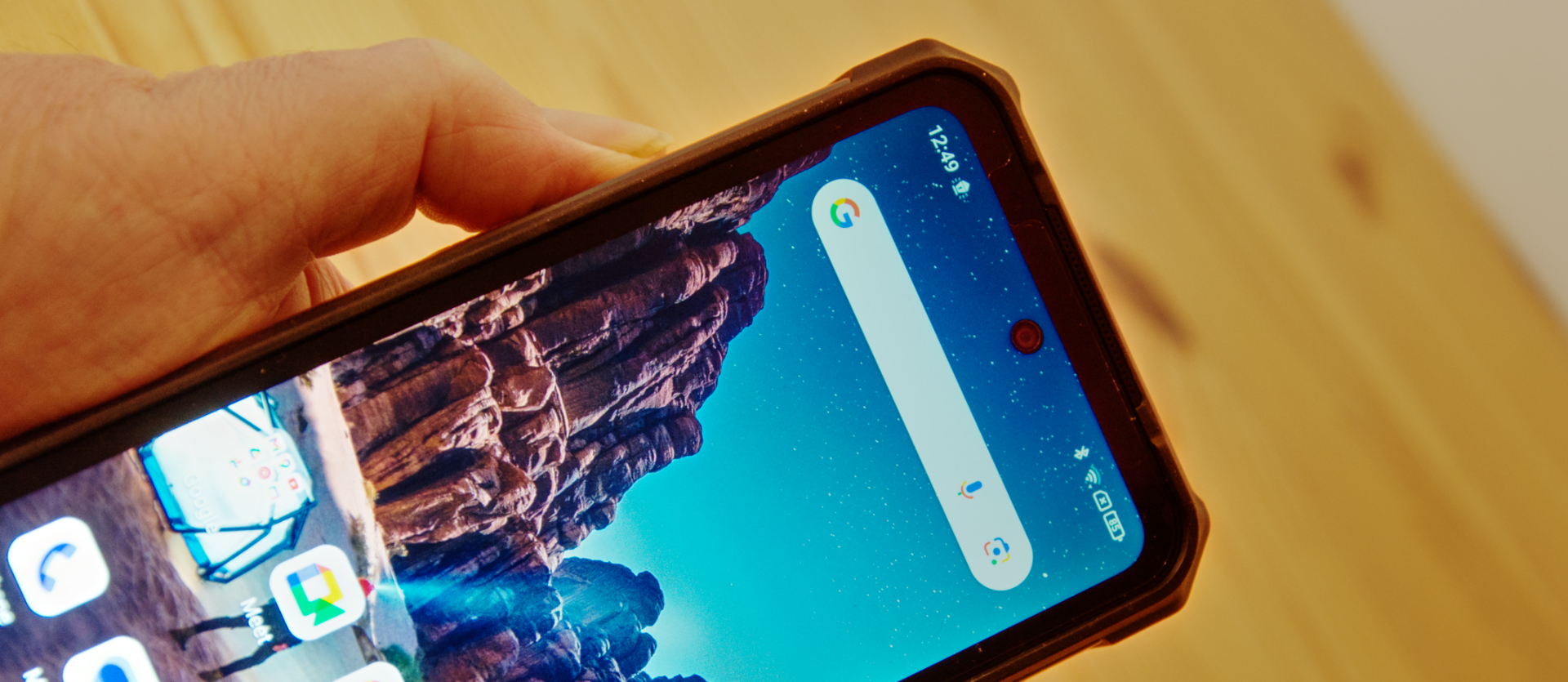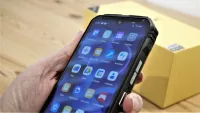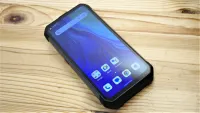TechRadar Verdict
Borderline impractical, the Armor 24 does have a massive battery and stadium-level illumination. But the best selling point of this device is that the specification is great for the modest asking price.
Pros
- +
Inexpensive
- +
Massive battery
- +
1000 Lumen light
- +
Dual 64MP rear camera sensors
- +
66W fast charge
Cons
- -
Heavy
- -
Only 4G
- -
Only 2K video capture
Why you can trust TechRadar
Ulefone Armor 24: 30-second review
To cover all the potential markets, some brands often make designs that are derivatives of previous models. The Ulefone Armor 24 is a classic example of that exercise because at least half the components in this phone are identical to the Armor 22.
That said, what has changed utterly alters who will likely be interested in this phone. Where the Armor 22 was a relatively modest rugged design that imbued practicality, the Armor 24 is heavy with a huge battery capacity. And, at nearly 650g, it requires a huge pocket.
The target audience of the Armor 24 is wilderness hikers who need the best rugged phone capable of working for a week away from mains power, illuminate well enough to pitch a tent, and take some nice pictures and videos along the trail.
How quickly that tent can be erected could impact how long the 22000mAh of battery life lasts when it is powering 510 LEDs for up to 1000 lumens of illumination.
What the Armor 24 does is walk a fine line between something that people will find genuinely useful that makes life easier and merely being a lump of hardware that, when carried over a long distance, you will progressively regret.
It's difficult to argue with the specification or the price but be convinced that you are happy to carry a phone in a bag and not a pocket before investing in this one.
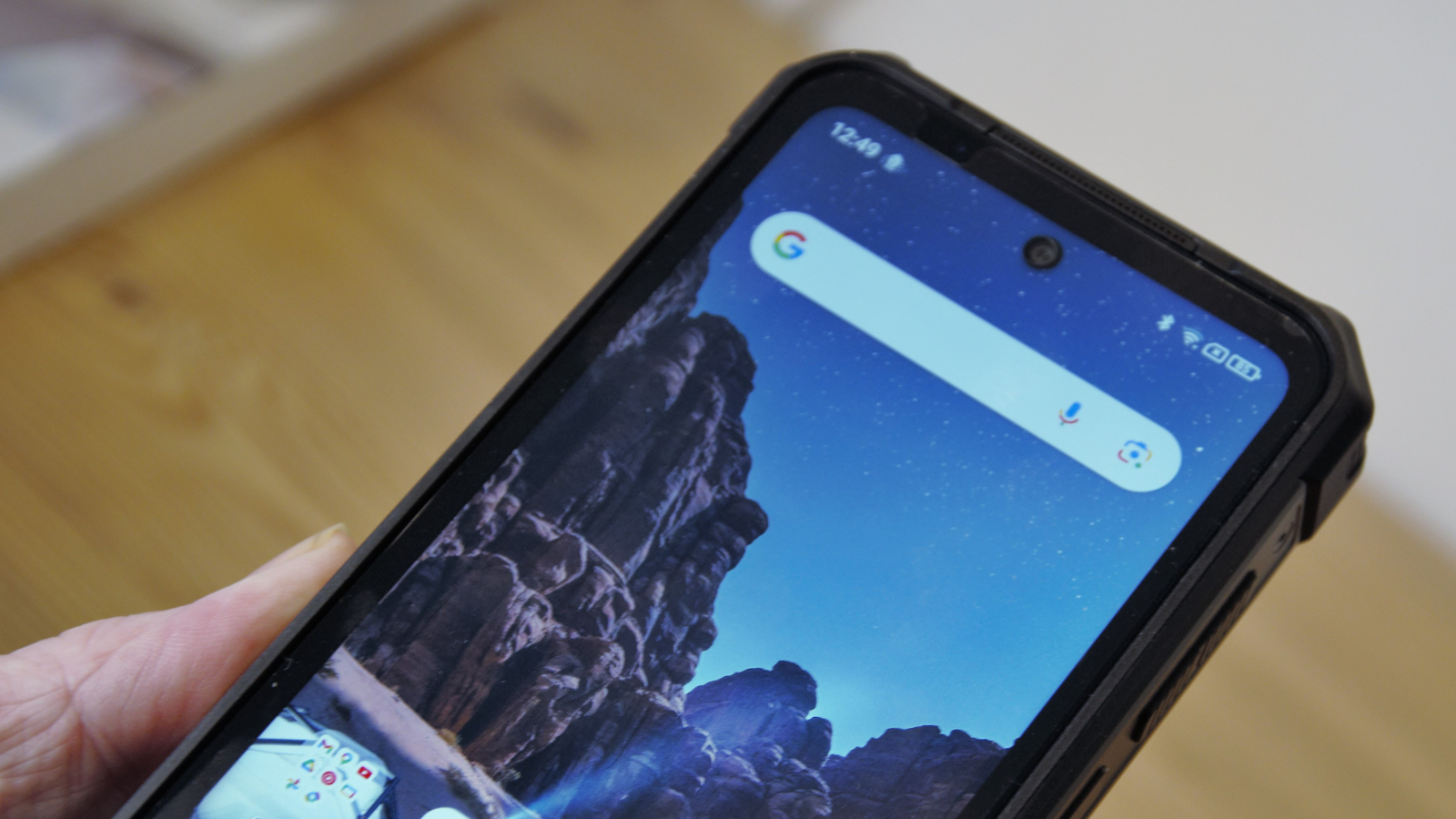
Ulefone Armor 24: price and availability
- How much does it cost? From $330
- When is it out? Now
- Where can you get it? Direct from Ulefone or from online retailers like Amazon and AliExpress
The Armor 24 comes in only a black colour scheme and memory options of 12GB and 256GB of storage. The official price of this phone from Ulefone is $329.99, although we were able to find it for a jaw-dropping $219.99 price.
Sign up to the TechRadar Pro newsletter to get all the top news, opinion, features and guidance your business needs to succeed!
Considering the capabilities of this device, the value here is tremendous.
Those who want faster delivery can source it from Amazon, although it costs even more than from the maker for the joy of getting it the next day.
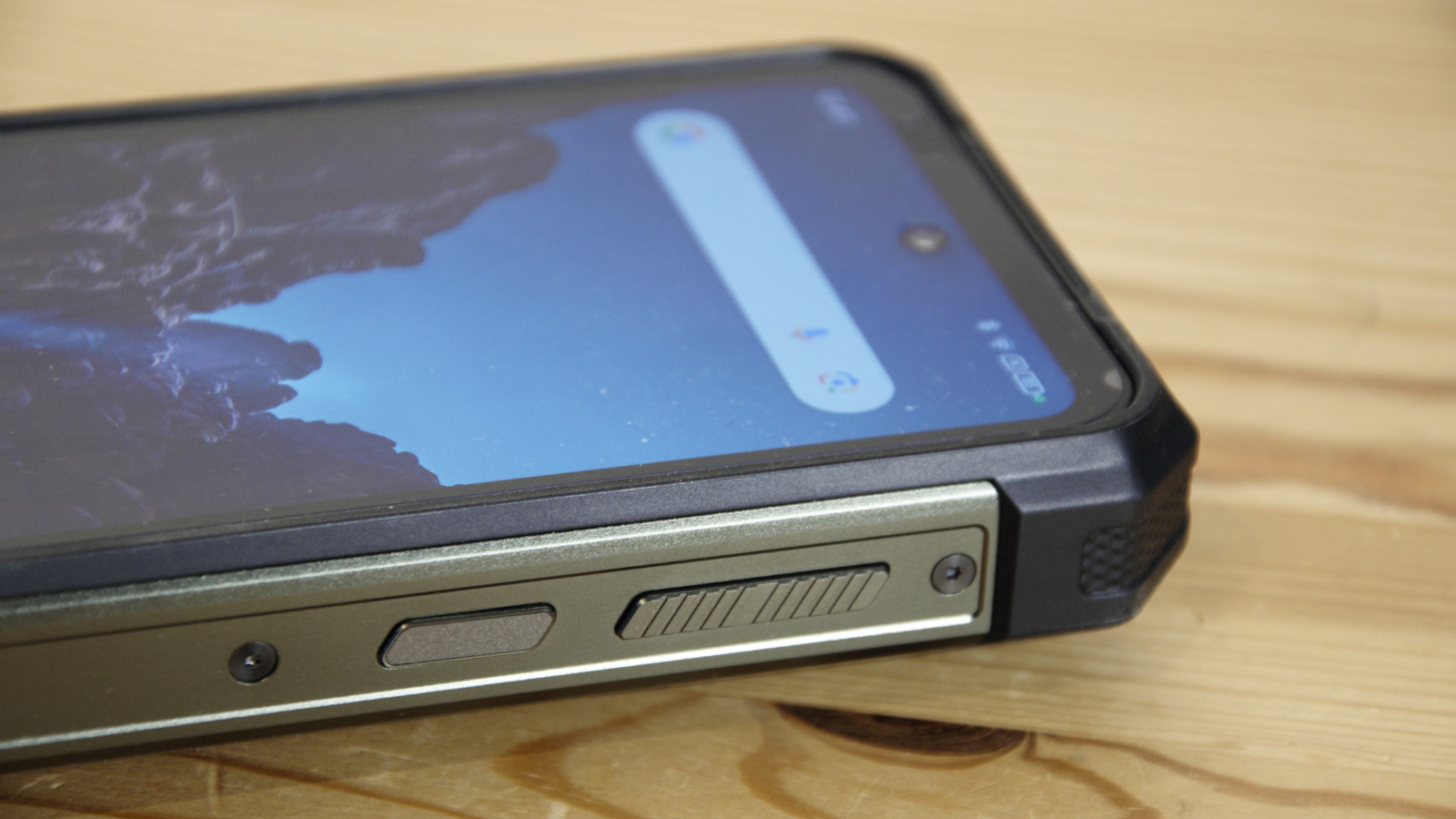
- Value score: 5/5
Ulefone Armor 24: Specs
| Item | Spec |
|---|---|
| CPU | MediaTek Helio G96/ Octa Core / 2.05 GHz / 6nm / 4G |
| GPU: | ARM Mali-G57 MC2 |
| RAM: | 12GB LPDDR4X |
| Storage: | 256GB UFS 2.2 |
| Screen: | 6.78-inch IPS FHD+ 120Hz |
| Resolution: | 1080x2460 |
| SIM: | Dual Nano SIM + MicroSD |
| Weight: | 647g |
| Dimensions: | 181.2 x 87 x 27.5 mm |
| Rugged Spec: | IP68/IP69K, MIL-STD-810G, standard 60529 |
| Rear cameras: | 64MP SONY IMX686 Primary, 64MP OV64B Nightvision |
| Front camera: | 16MP S5K3P8 sensor |
| Networking: | WiFi 5, Bluetooth 5.2 |
| OS: | Android 13 |
| Battery: | 22000mAh (Max charge 66W - 11V 6A) |
Ulefone Armor 24: design
- Chunky
- Heavy
- Powerful illumination
Picking up the Armor 24 for the first time, it's easy to be overwhelmed by just how heavy and thick it is. At more than an inch from front to back and over seven long, this isn’t a device that will slip neatly into any pocket.
The construction combines aluminium and glass-reinforced polycarbonate, making it feel almost invulnerable. Extra protection is focused on the corners with a rubberised plastic, and the undersides have a distinct bevel to reduce sharp edges.
The layout is almost by-the-numbers, with a fingerprint sensor power button and volume rocker on the right and SIM tray on the left. Where the Armor 24 differs is that on the left are two customisable buttons, one coloured orange intended for talk-to-speak use, and the left lower edge also has a special connector.
Initially, we assumed this was for a vehicle mount. But it turned out to be the means to connect Ulefone uSmart Expansion devices, including three different endoscopes and a microscope. These accessories weren’t provided with our review hardware, but they all look useful for those who want to look inside an engine or the contents of pond water.
Each end has a rubber plug protecting a port from dust and water ingress, with the top covering a 3.5mm audio jack and the bottom a USB-C port.
We’re not huge fans of rubber plugs, but at least the one protecting the USB-C port has a screw holding it in that suggests replacements may become available to help maintain the seal integrity.
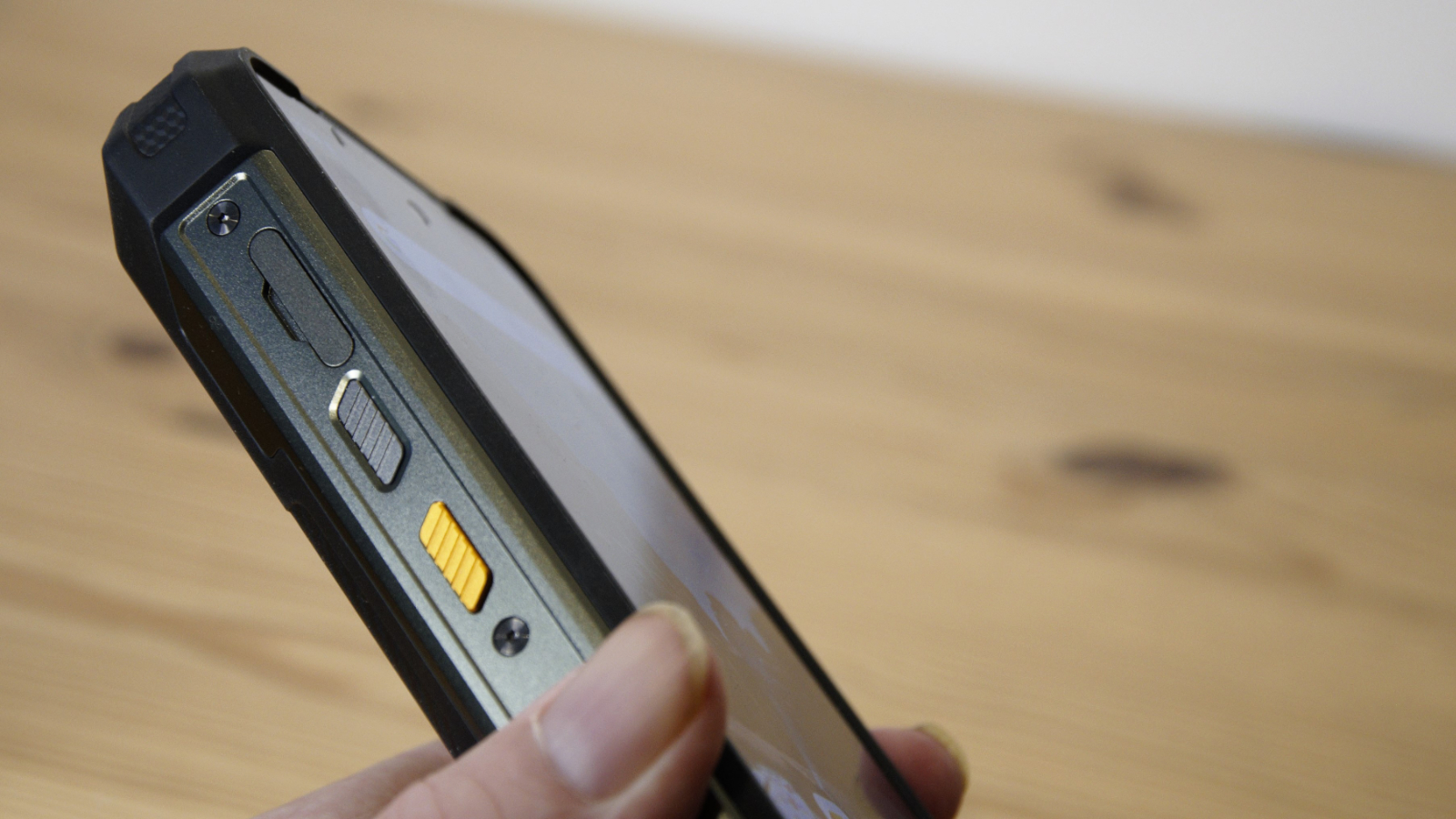
Where the Armor 24 is most divergent from other rugged phone designs is the back, which is dominated by a dual-camera cluster with a regular flash and IR LEDs. Below the camera cluster is an LED array for general illumination.
According to Ulefone, the LED light has 510 elements in a chevron arrangement of approximately 30mm x 58mm. Those numbers would suggest an array of thirty rows by seventeen columns, and we counted that many.
Set at full brightness, this panel can output 1000 lumens, allegedly, and it is exceptionally bright. What we wouldn’t recommend is turning the phone over and then activating the light while looking at it while in the dark. Not only will it wreck whatever night vision you’ve cultivated, but you probably won’t be able to see much for a few minutes afterwards. Within the Android 13 implementation are some software controls for the light, and it can send an SOS flash to the incredibly small number of people who can read Morse code these days.
This feature might be useful for those who need a comfort break in the middle of a forest at night, but using it for any prolonged period will reduce battery life, as it consumes 6W on maximum brightness.
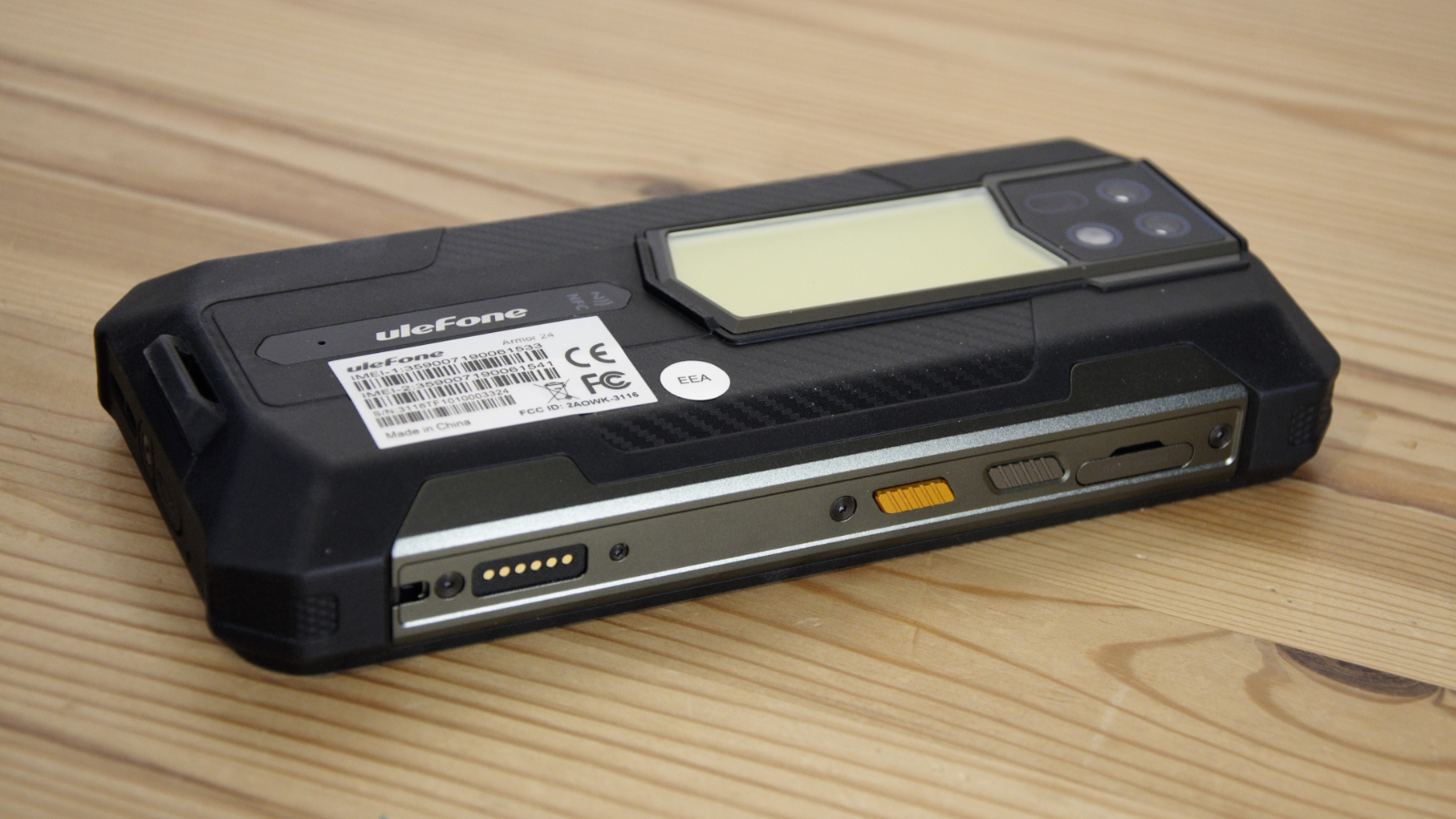
Design score: 4/5
Ulefone Armor 24: hardware
- Same SoC as Armor 22
- 12GB of RAM
- Large display
Economics might be involved, but this device uses the same MediaTek Helio G96 SoC we saw in the Armor 22.
The G96 is a slightly down-clocked version of the popular G99, with a maximum clock of 2.05GHz and 150Hz slower than the G99.
It uses older fabrication and is roughly 10% slower than its G99 brother, and it lacks the power efficiency that the newer 6mn chips offer with its 12nm wafer.
The designers clearly took the view that with 22000mAh of battery to squander, a cheaper and less power-efficient SoC was an acceptable trade.
In our previous Armor 22 review, we quoted that the maximum amount of RAM supported by the G96 is 10GB, but the one in this phone comes with 12GB and using a storage mapping trick, this can be boosted to 24GB. Is this a new version of the G96?
What hasn’t changed is that the G96 only supports GSM, 2G, 3G and 4G, not 5G comms. But the frequency ranges covered by the mobile phone part of this device should work in most regions without an issue, even if the best speed available is 4G.
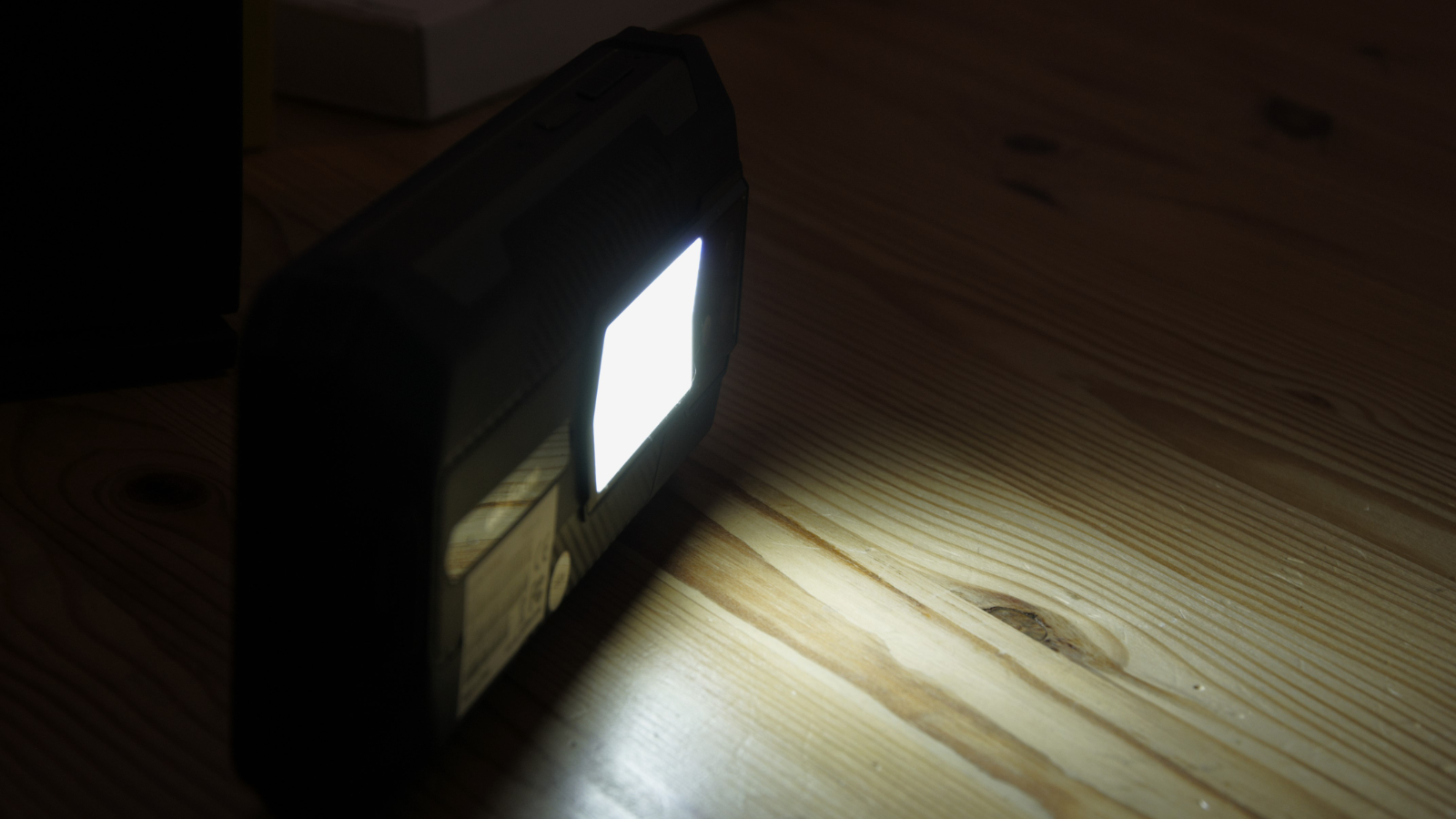
Being a large device, the Armor 24 is blessed with an equally massive 6.78-inch display that has a 120Hz refresh and a 240Hz touch sensor.
While its IPS technology and the resolution is only 1080 x 2460, it’s a serviceable screen for those wanting to watch 1080p video content on their device. However, like all the Ulefone rugged designs we’ve reviewed recently, the Armor 24 only supports Widevine L3 encryption, limiting most streaming services to just 480p playback resolution.
We’d categorise the hardware in this phone as delivering an acceptable user experience, but it's nothing special and hardly ideal for more demanding game titles.
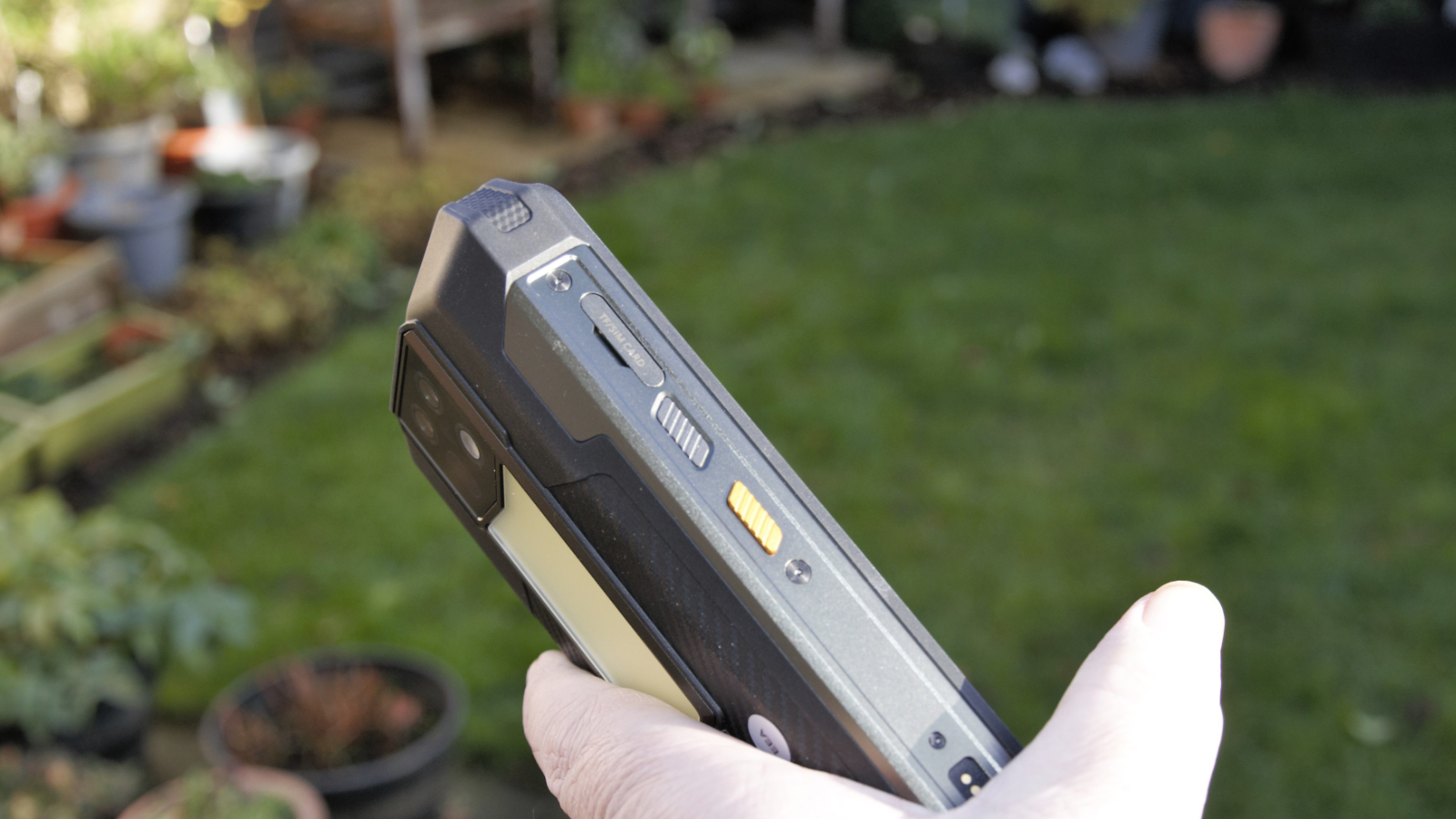
- Hardware score: 4/5
Ulefone Armor 24: cameras
- 64MP Main sensor
- 64MP Night vision
- No 4K video recording
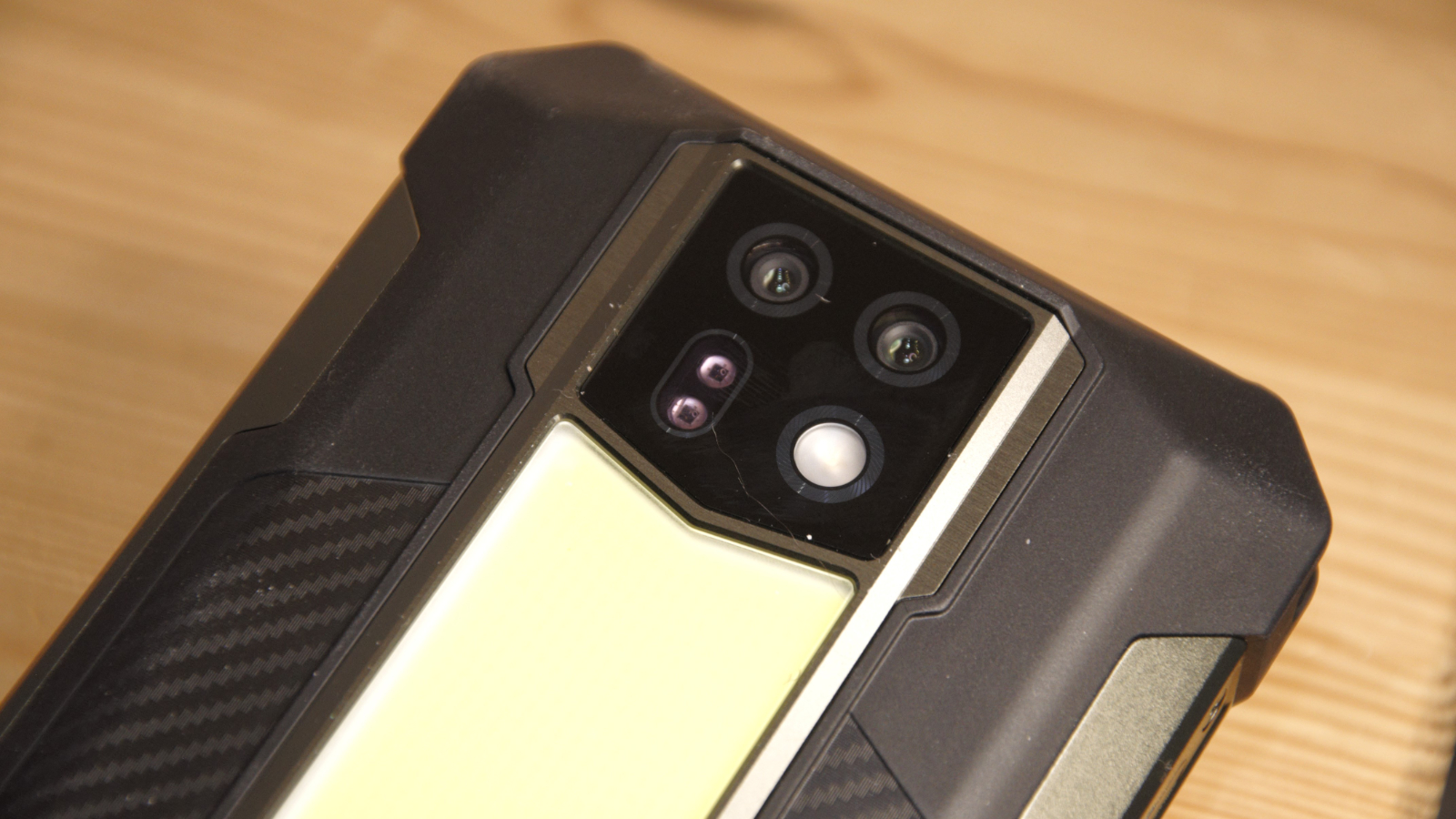
The Ulefone Armor 24 has three cameras:
- Rear cameras: 64MP SONY IMX686, 64MP Omnivision OV64B Night vision
- Front camera: 16MP Samsung S5K3P8 sensor
The rear camera arrangement is identical to the Armor 22, so rather than rehashing all that you might want to read about it on that review here.
To summarise that analysis, this SONY IMX686 and Omnivision OV64B combination delivers some excellent quality images for those capturing nature or night vision subjects.
What’s slightly odd is that Ulefone promotes this phone as suitable for underwater photography, but there is no ‘underwater’ mode we could find.
As this and most rugged phones are only rated as being waterproof to around 1.5M, we’d be extremely careful trying to use them for underwater shots.
Where the camera is disappointing is not in the sensors but in the limitations applied by the camera app. The best video resolution is only 2K when the IMX686 sensor is rated for 4K@60k by Sony.
What Ulefone did improve is the front camera, going from an 8MP Omnivision sensor on the Amror 22 to a Samsung 16MP S5K3P8 sensor on this design.
It’s a better sensor with improved low-light sensitivity for those who like to spend time video conferencing.
If you don’t need 4K video, then the cameras on the Armor 24 are fine, although with so many phones using the 108MP sensors, they’re not the very best available. should be aware that the best quality you will get from the bigger streaming services is 480p because of that.
Ulefone Armor 24 Camera samples

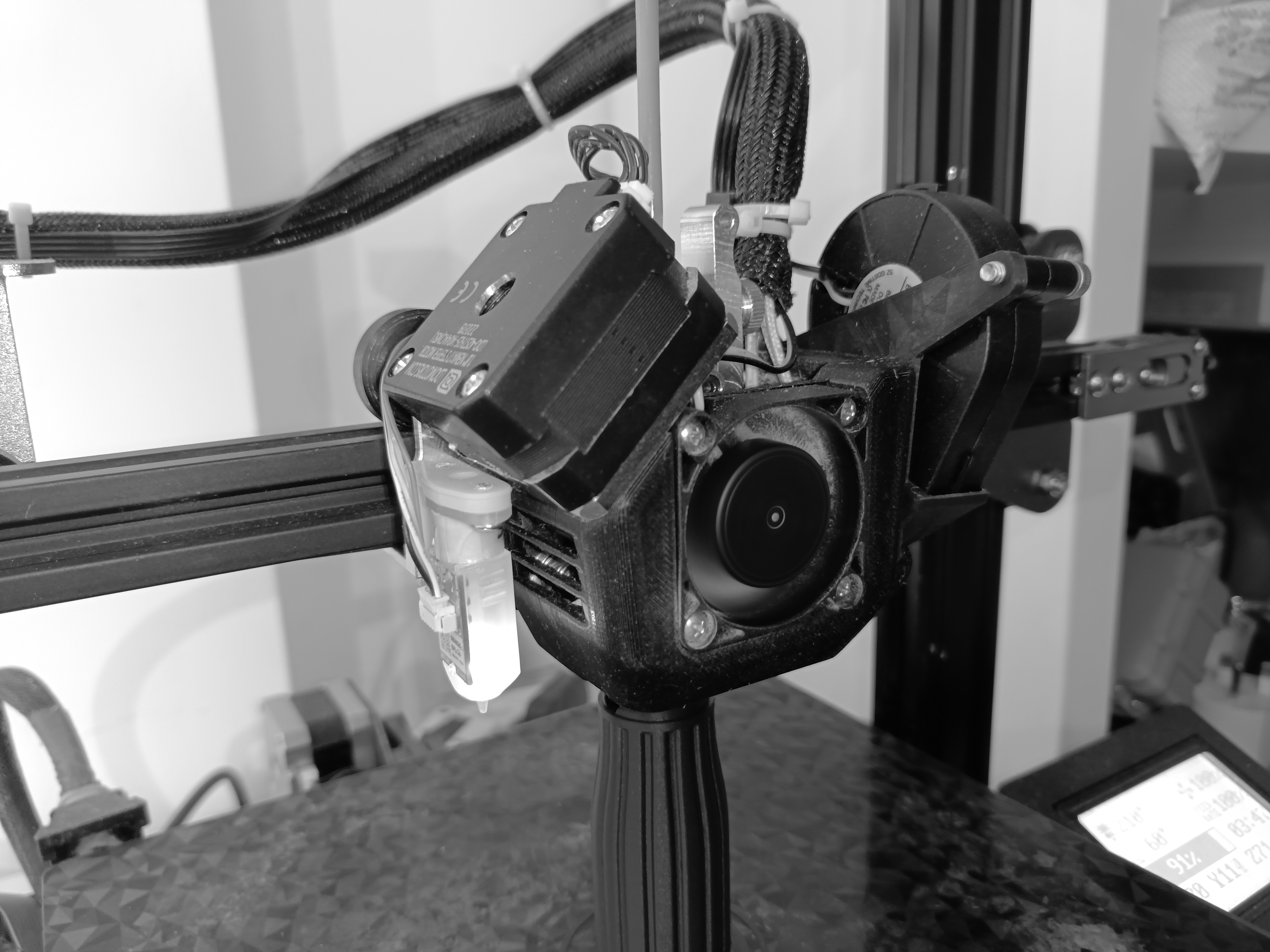

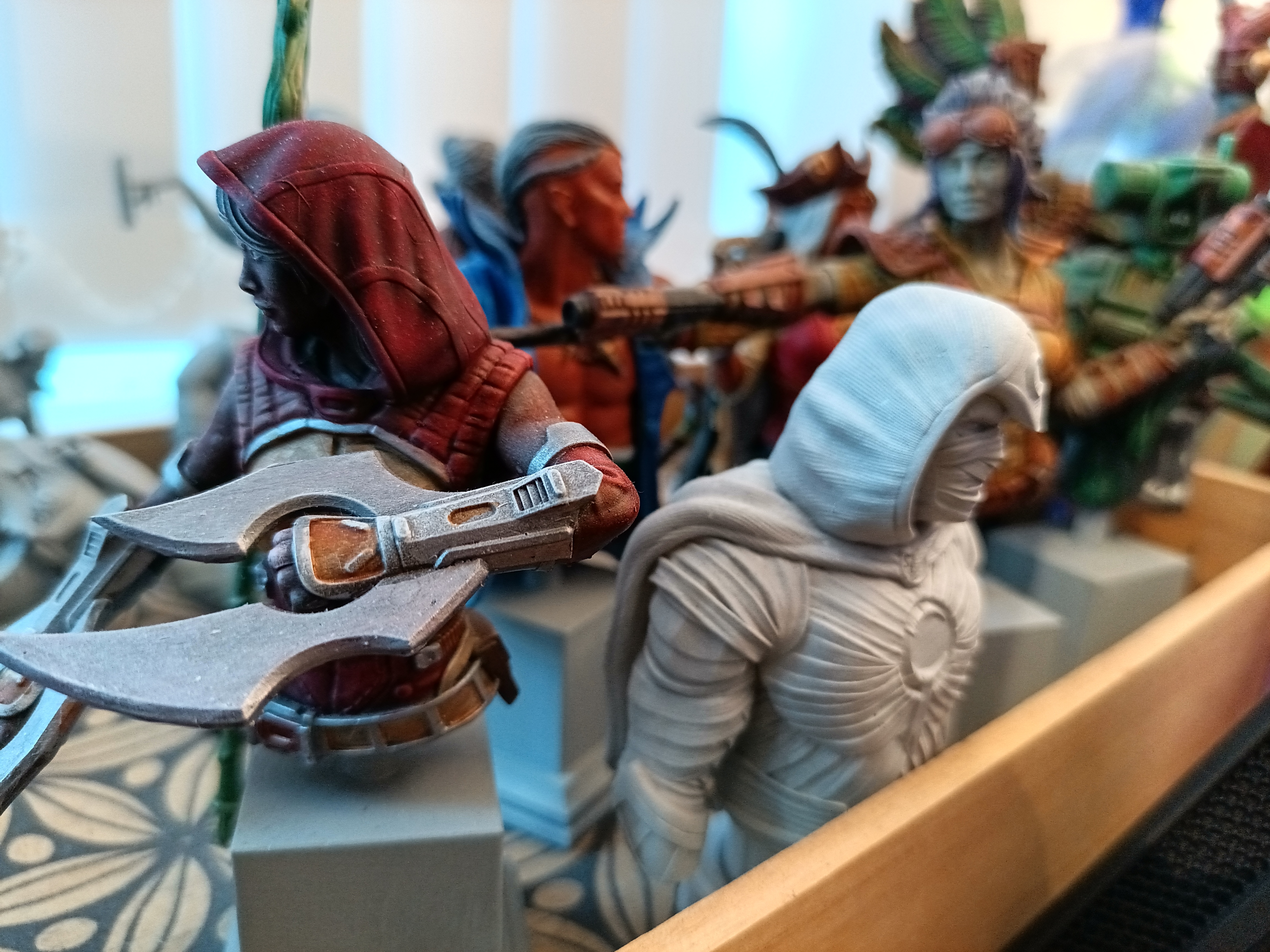
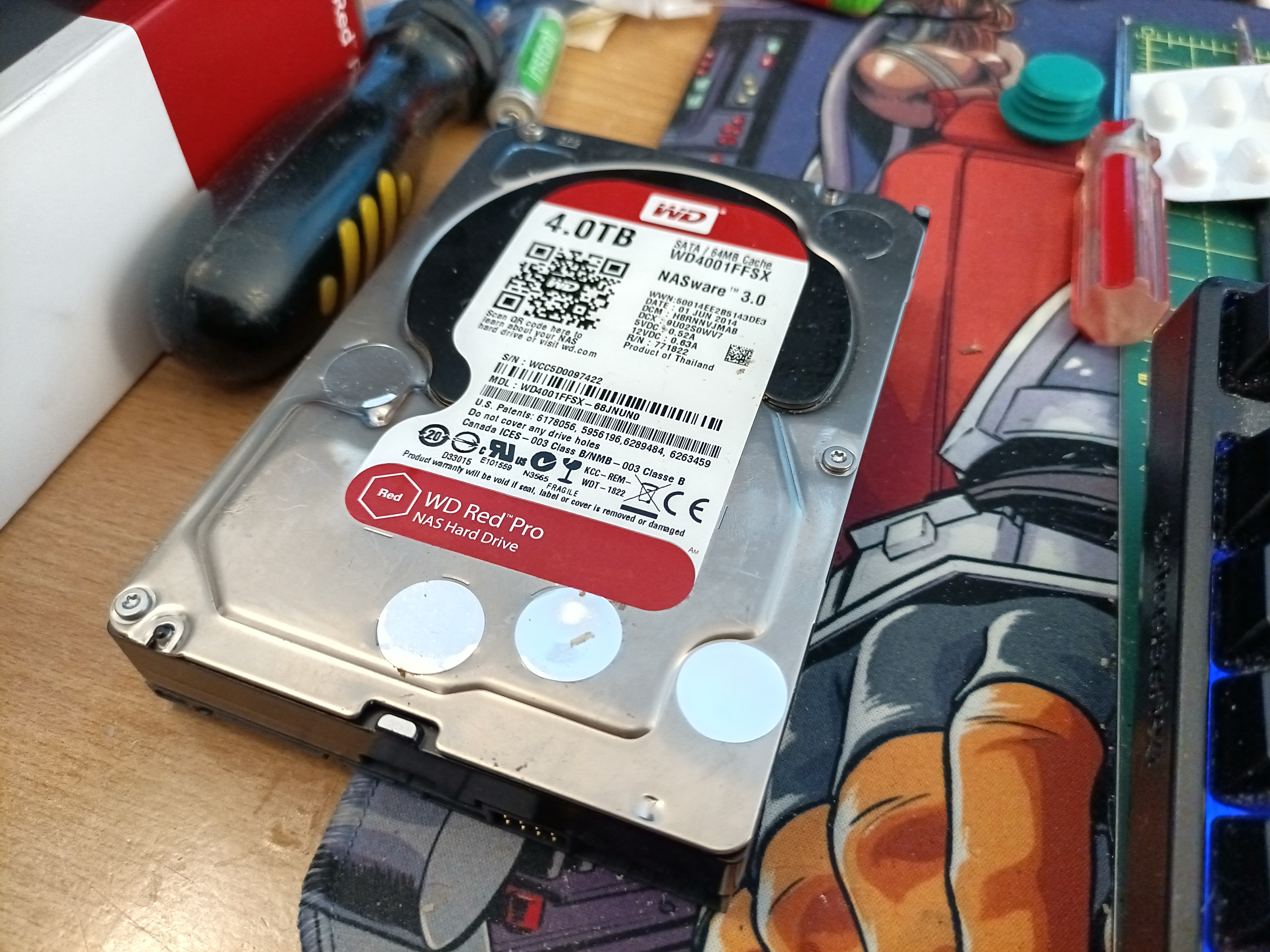
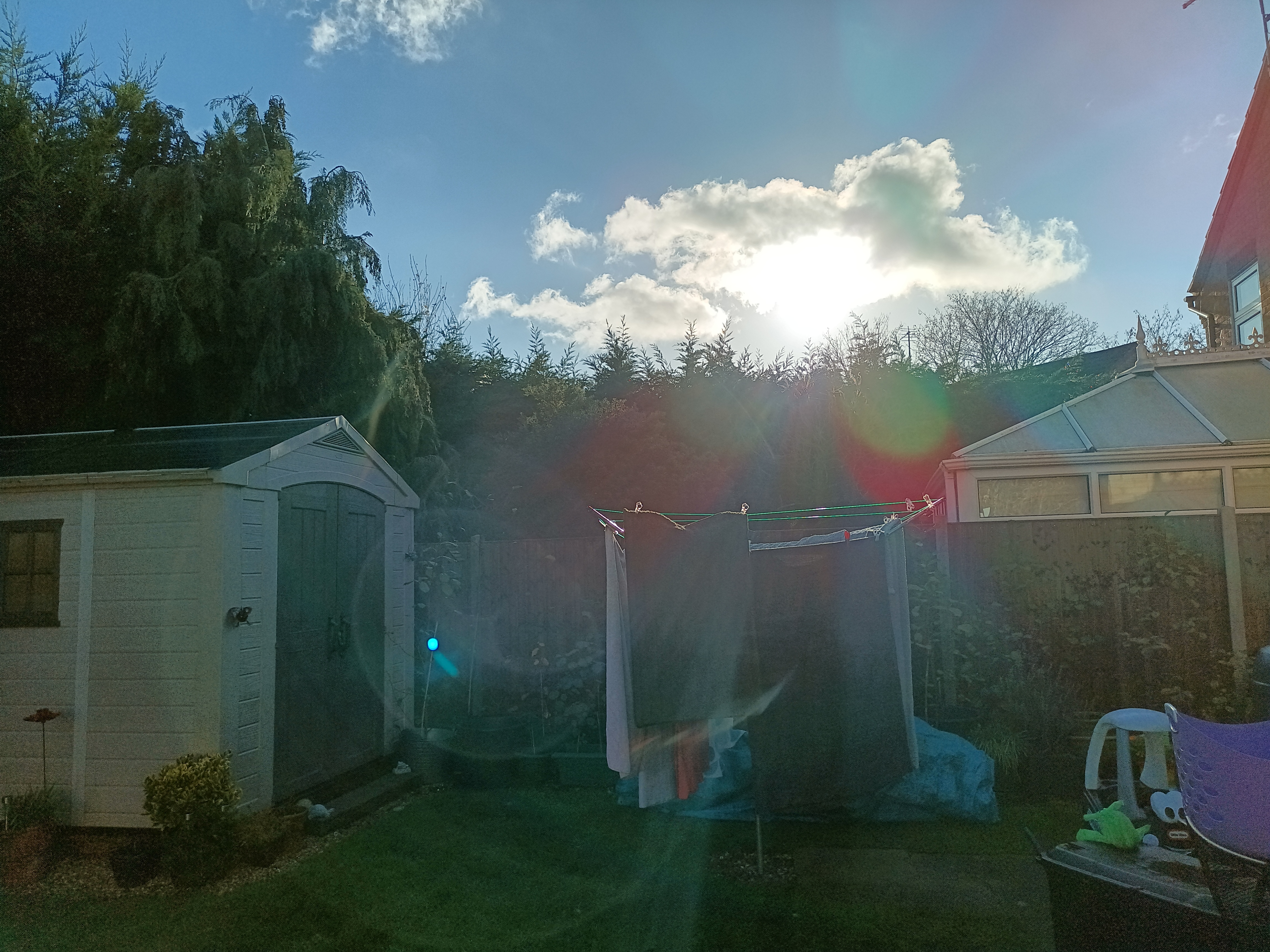
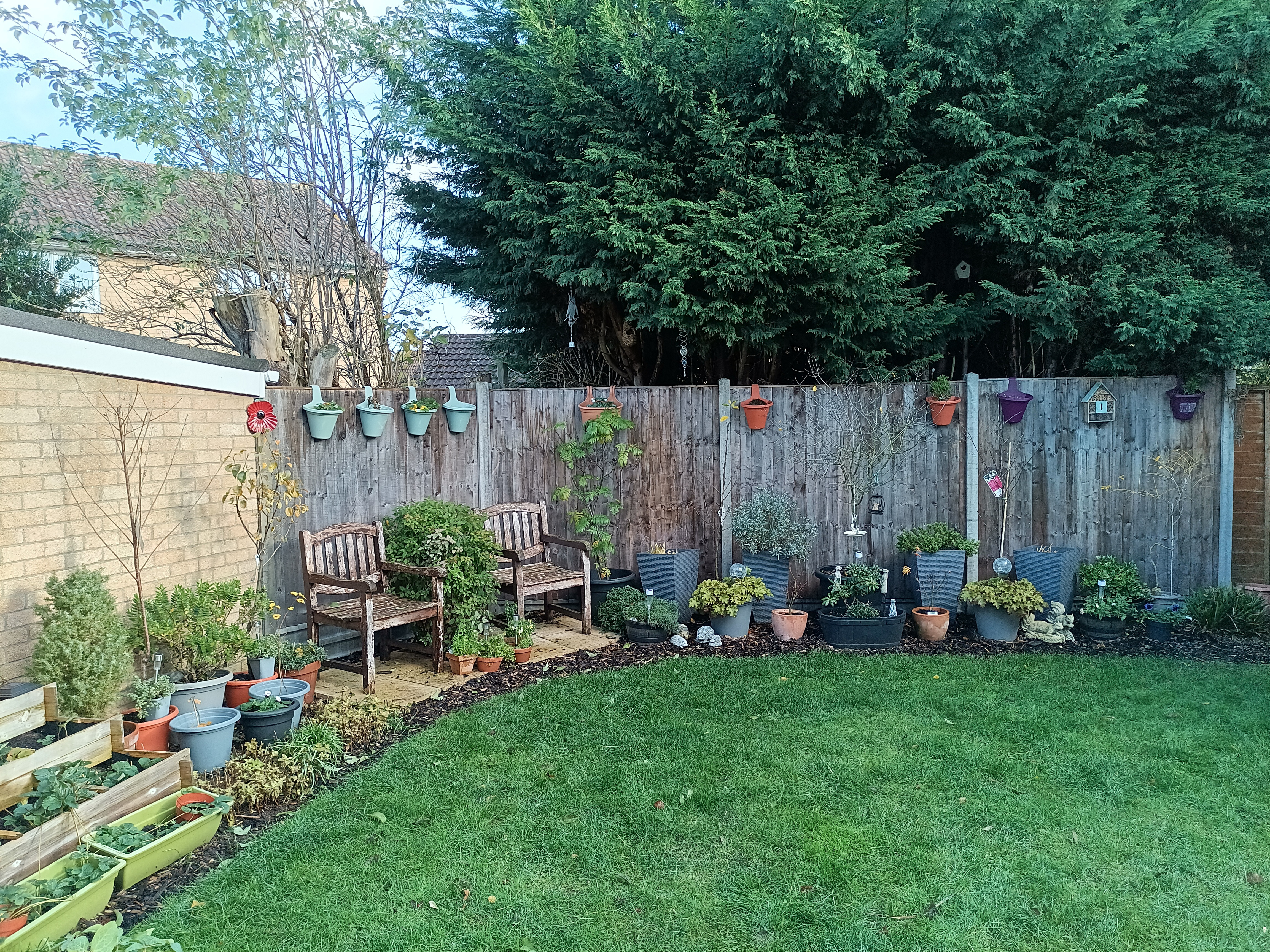


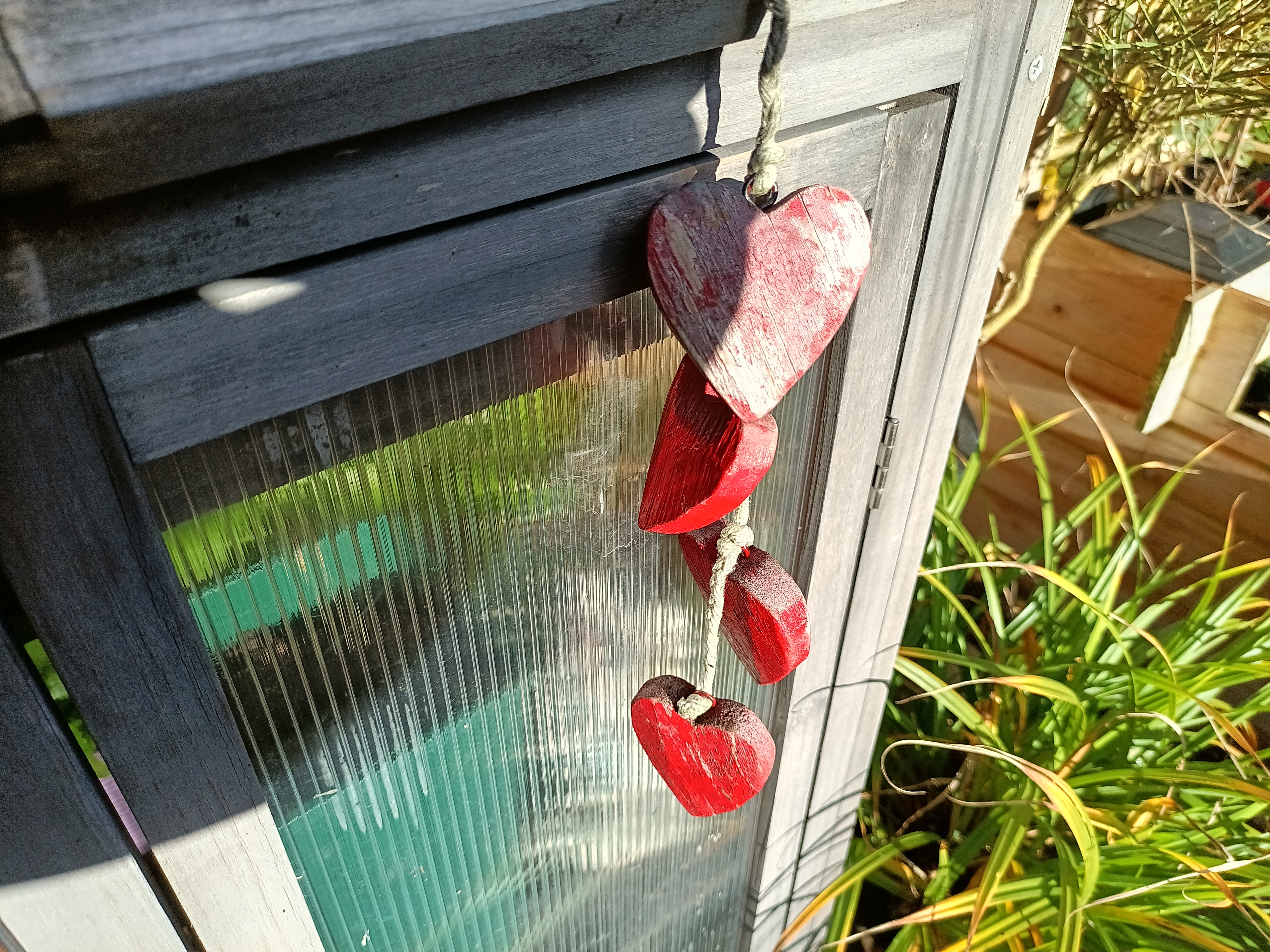

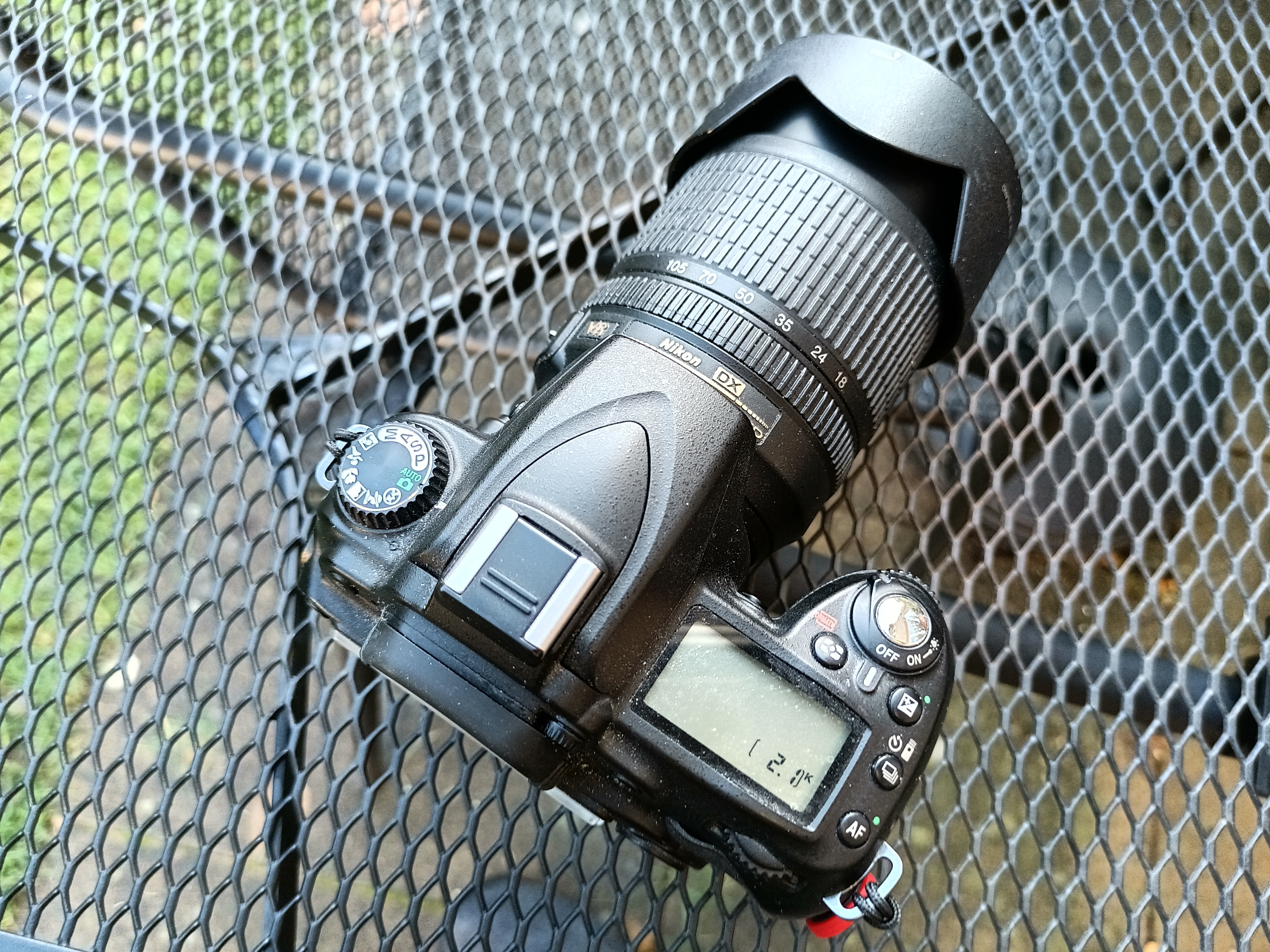






- Camera score: 4.5/5
Ulefone Armor 24: performance
- Average performer
- Big, big battery
- Fast 66W charging
| Benchmark | Test | Ulefone Armor 24 | Ulefone Armor 22 |
|---|---|---|---|
| Geekbench: | Single core | 515 | 506 |
| Multi core | 1740 | 1478 | |
| OpenCL | 1419 | 1428 | |
| Row 3 - Cell 0 | Vulkan | 1493 | 1498 |
| GFX | Aztec OpenGL Standard | 13 | 13 |
| Aztec Vulcan Standard | 11 | 11 | |
| Car Chase | 12 | 11 | |
| Manhattan 3.1 | 22 | 21 | |
| PCMark: | Score | 9810 | 9847 |
| Battery | 55h 47m | 13h.65m | |
| Passmark: | Overall Score | 8810 | 7599 |
| CPU Score | 4485 | 3707 | |
| 3DMark: | Slingshot OpenGL | 3396 | 3372 |
| Slingshot Extr. Open GL | 2460 | 2440 | |
| Slingshot Extr. Vulkan | 2314 | 2292 | |
| Wild Life | 1161 | 1152 |
The obvious point of comparison for the Armor 24 is its little brother, the Armor 22.
Earlier in this review, we commented that Ulefone, like other phone makers, doesn’t like to start with a blank sheet when creating a new design. The number here shows that the computing capability of the Armor 24 is practically identical to the Armor 22 but with more RAM.
If the acceptable level of variance is considered, these are the same platforms running the same version of Android in the majority.
Where they diverge is in the battery size and exactly how long they will last on a full charge, with the 22000mAh battery on the Armor 24 delivering over three times the longevity of the 5000mAh battery on the Armor 22. Basic maths would suggest that it should last even longer, but there are many factors at play.
Accepting our results, the Armor 24 should last at least a week with daily use, and if managed, it could last much longer.
For those wanting to extend the operating life to the maximum, we’d recommend turning off WiFi, NFC, and mobile communications if you are out of range of these services. Turning the brightness of the screen down, and avoid using the big light.
What isn’t covered in these benchmarks is how rapidly the phone can recharge using the included 66W charger. It still takes longer than the Armor 22 because it has more than four times the capacity and only double the charging throughput.
However, it can get a full charge in as little as 130 minutes, according to Ulefone.
Other quotes power performance numbers include 1300 hours of standby, 100 hours of calling time and 33 hours of video playback.
The Armor 24 has the largest capacity battery that we’ve seen on a rugged phone, matching that seen on the Doogee S100 Pro, Unihertz Tank and Doogee V Max.
It is also essential to understand about this design is that with the OTG USB-C cable, it is possible to output 10W to another device, using the phone as a powerpack for other devices.
What the Armor 24 offers isn’t exceptional performance, but it's good enough for most applications. The only place it stands out is battery life, which has a weight penalty.
- Performance score: 4/5
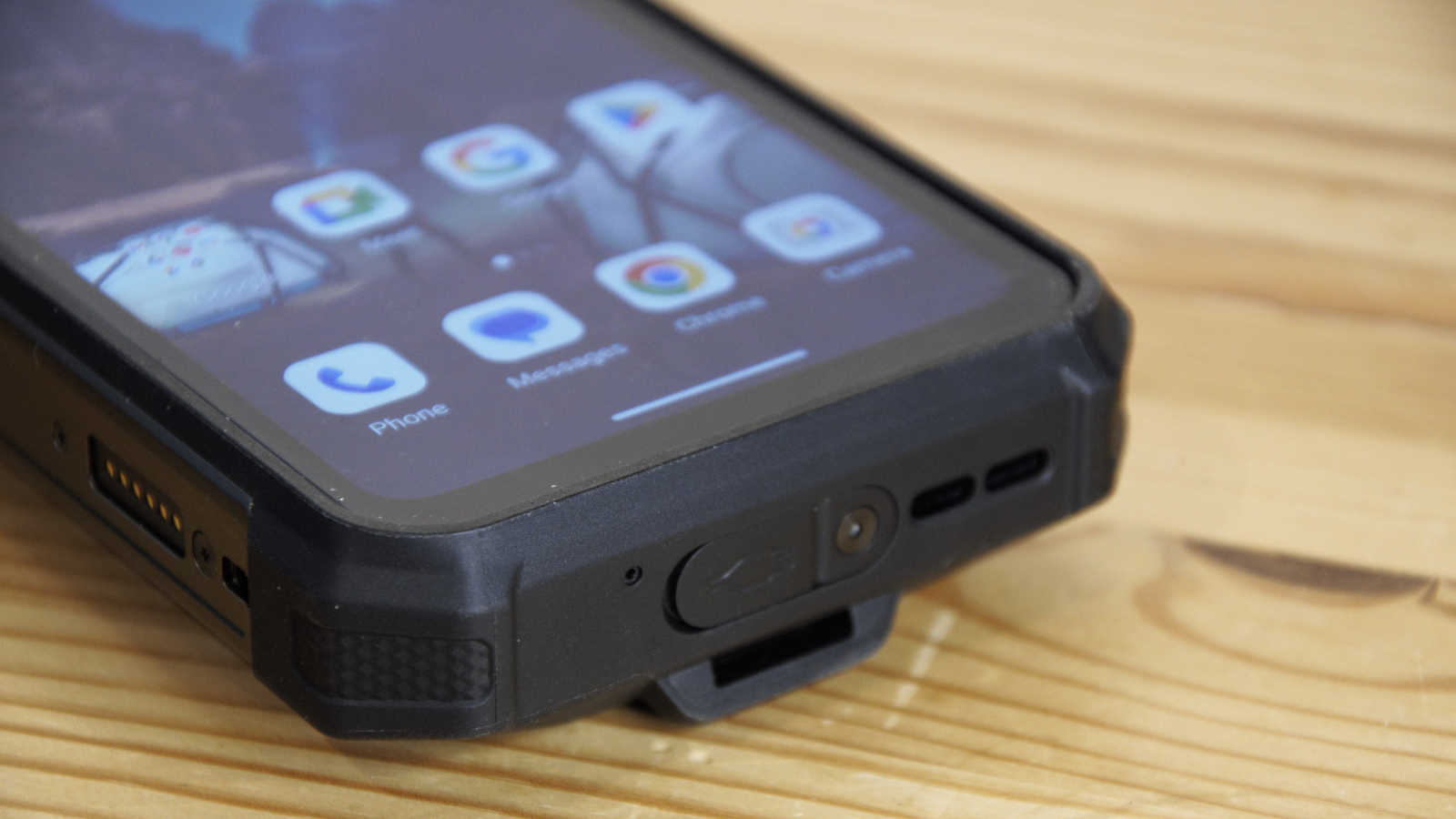
Ulefone Armor 24: Verdict
The Armor 24 is a well-specified phone design with a decent camera, fantastic battery life, and resilience, making it a viable alternative to using a hammer. However, the size and weight of this phone don’t make it especially practical, and those hiking long distances might be better with the Armor 22 and turning it off when you don’t need it.
This option wins if you don’t intend to travel on foot and need a relatively inexpensive device for mobile communications and taking pictures without worrying about rain or dust.
The Armor 24 delivers exceptional value for the functionality Ulefone put in it, but the size and weight of this device are more than a little offputting.
Should I buy a Ulefone Armor 24?
| Attributes | Notes | Rating |
|---|---|---|
| Value | A great spec for relatively little money | 5/5 |
| Design | Not remotely elegant, but it can handle abuse and be used as a blunt instrument | 4/5 |
| Hardware | Another G96 phone to go with many other Ulefone designs, but it lacks 5G or wireless charging. | 4/5 |
| Camera | Dual 64MP rear cameras but no 4K video | 4.5/5 |
| Performance | Identical to the Armor 22, but with a much greater battery life. | 4/5 |
| Overall | A heavy lump of a phone, but affordable if you need a huge battery. | 4/5 |
Buy it if...
You need a phone that can take knocks
Those who often work in the environment need a phone that can get wet or muddy and not have issues, and the Armor 24 is that phone. While we’d avoid underwater photography, this is a highly resilient design.
Battery life is critical
Of the phone designs we’ve seen with 22000mAh batteries, this is easily the cheapest and has some of the best cameras. Being able to use it to charge other devices makes the Armor 24 a highly flexible option.
Don't buy it if...
5G is a requirement
While the Armor 24 supports all the legacy frequencies and 4G LTE, it doesn’t support 5G and that technology's speeds. Depending on where you are regionally, this is either no problem at all or a bigger issue.
4K video is a requirement
The best video this phone can capture is 1440k resolution, even if the sensor can do higher resolutions. If you want to capture 4K video, then this isn't for you. But the still image capture is good.
Also consider
Doogee S100 Pro
Using the G99 SoC and 104MP camera sensor, this is a marginally more powerful option. But with a price tag of $400, this is also a more expensive option. You get a huge 22000mAh battery for the investment, making it last longer on battery power but also much heavier to carry.
Read our Doogee S100 Pro review for more information.
UniHertz Tank
Using the MediaTek Helio G99 SoC and with a 108MP camera sensor, this phone has the same battery size. But it is lighter by 100g or more, for only a few dollars more than the Armor 24. Its downsides are that, like the Armor 24, it’s only 4G and doesn’t have room for a MicroSD card.
Read our UniHertz Tank review for more information.
Mark is an expert on 3D printers, drones and phones. He also covers storage, including SSDs, NAS drives and portable hard drives. He started writing in 1986 and has contributed to MicroMart, PC Format, 3D World, among others.
